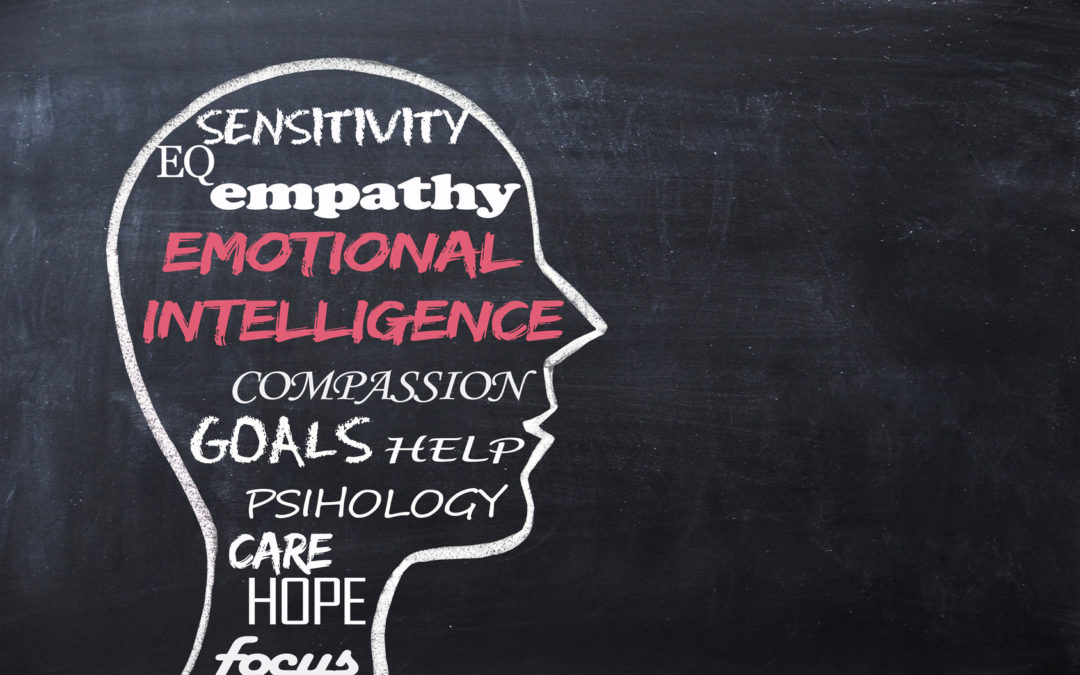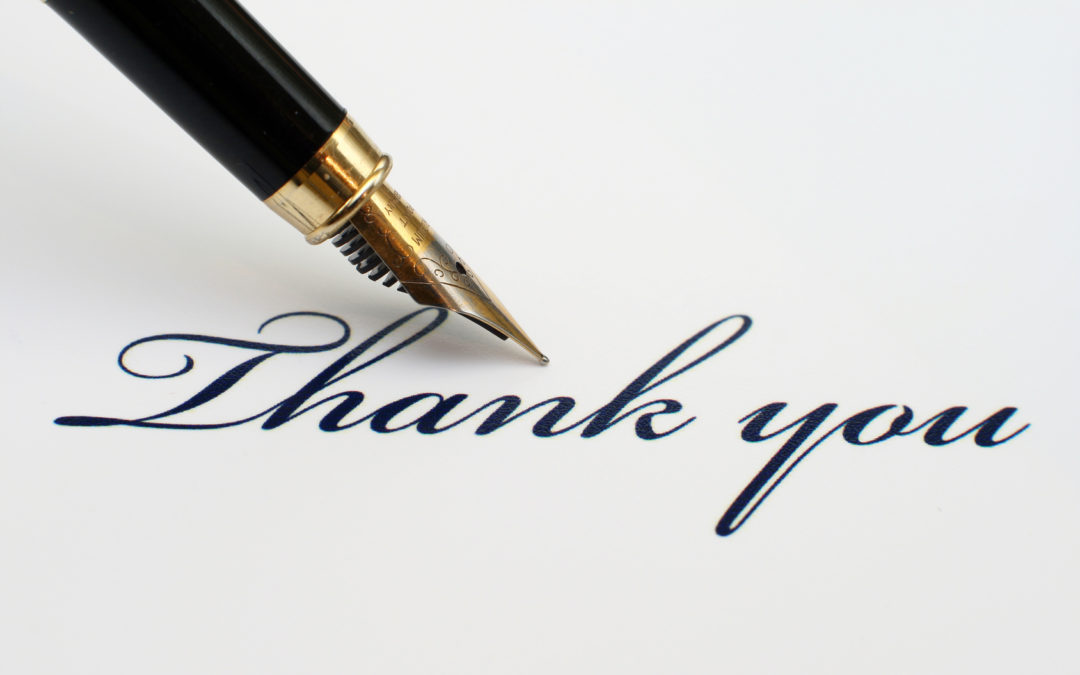
Mar 20, 2018 | Career Coaching, Interview Coaching
The markets show that the economy has improved since the 2008 recession. But many Americans are still struggling to find work.
Even a college education is no longer a guarantee of employment. Among young college graduates, there is a 5% unemployment rate and a 12% underemployment rate.
While Americans are searching for work, many employers struggle to fill open positions. According to these employers, candidates they interview lack the “soft skills” needed to ensure success.
The ability to communicate and demonstrate emotional intelligence in the workplace are both soft skills. Supervisors look for employees with these skills. That’s because they are essential to working well with coworkers, clients, and management.
Let’s take a closer look at what emotional intelligence is and how you can develop it.
What is Emotional Intelligence?
Emotional intelligence is the ability to identify, manage, and understand your own emotions, as well as the emotions of others.
Individuals who have emotional intelligence can recognize their own emotions and feelings. They can also empathize with the emotions of others. These skills enable them to interact and engage with team members, customers, and senior leaders.
Working With Others
In today’s global economy, collaboration is essential. Many workplaces rely on teamwork to develop creative solutions and to get work done.
This makes emotional intelligence a key success factor. Employees with emotional intelligence are better prepared to work on a team. This is because they can handle the unique challenges and stress.
For instance, emotionally intelligent people understand their own strengths and limitations. Being self-aware helps them to understand when to ask for help.
Employees with emotional intelligence are also able to understand that every individual has their own approach to work. Because of this, they respect their coworkers’ needs and habits.
Emotional intelligence also aids workers in managing and resolving conflict. An emotionally intelligent employee will understand their role in contributing to workplace dissension. They will also be able to identify ways to improve their work environment.
Practicing Emotional Intelligence
Some people believe you must be born with emotional intelligence. But the truth is that you can take steps to cultivate it. Practicing emotionally intelligent behavior will assist in training your brain to start thinking in this way.
To improve your emotional intelligence, pay close attention to your own emotions. Let’s say you’re frustrated with a coworker. Try to determine the root cause of that frustration. Focus on understanding your own feelings, rather than trying to control your teammate’s behavior.
Emotional Intelligence in Leadership
Emotional intelligence is an important trait for both employees and employers. To be effective as a manager, it’s important to understand how people manage their emotions while dealing with workplace pressures. This will help managers identify their employees’ needs and create a productive work environment.
Also, it’s crucial for employers to have control of their own emotions. Impatient managers with short tempers often struggle to earn the respect of their employees.
Demonstrating Emotional Intelligence in the Workplace
Understanding emotional intelligence in the workplace can help you nail your next interview. Or, it can assist in securing that promotion you’ve been working so hard to recieve.
If you’d like to learn more about how you can show emotional intelligence on your resume or during interviews, contact us. Our expert career coaches will show you how to succeed by highlighting your strengths.

Oct 26, 2017 | Interview Coaching
Some people seem to just breeze through job interviews. There are others though who need a bit more preparation to be interview-ready. Whichever category you belong to, the good news is you passed the first interview and now, you just need to ace the second one.
As we’ve said before in a previous post, second interviews are common if you’re applying for a government position or a job in a large company. If you were shortlisted along with other strong candidates, employers usually want to know how you would fit in with the company’s culture.
Second interview questions are therefore different from the first one. Here, we’ll give you a rundown of questions you might encounter at a second interview and how you can best answer them.
Best Answers to Common Second Interview Questions
1. What Makes You The Best Person for the Job?
If this question has already been asked during the first interview, you might be tempted to answer the same way. But you should note that the interviewer (usually an HR person) has already noted down your previous answer. You should assume that the second interviewer already knows your qualifications.
Your answer should highlight your skills that best match the requirements stated in the job description. Don’t give generic answers. This is your chance to stand out from the competition and elaborate on how the essentials skills you have will be an asset to the role.
2. What Is Your Idea of Our Corporate Environment?
You should take what you’ve learned from your first interview and expand on how you could see yourself working for the company. If you know the company’s mission statement, you can also say something about the efforts of the company in terms of achieving it. This would also be a good time to ask for clarifications if, for whatever reason, you have some reservations about accepting the role.
3. What’s Your Expected Salary?
This should be easy to answer as long as you stick to a realistic salary range. Again, if this was already asked during the initial interview, you should take this opportunity to be consistent and explain why you feel the figure you’ve come up with is reasonable.
An important thing to remember is not to undervalue yourself. Considering the role and your experience, be prepared to explain why you should be paid that much for your skills. Don’t forget to ask about bonuses, benefits, and other perks.
Win Your Second Interview
The main difference between initial and second interviews is the questions are bound to be more personal. Beyond your skills and experience, your future employers want to see if you’ll work well with other employees and if you have what it takes to excel in your role, given the company culture.
If you find yourself nervous during interviews or if you need to work on your elevator speech, you should consider interview coaching. With the right coach, you won’t have to struggle with selling yourself. You will be well-equipped to effortlessly articulate your value and arm yourself with the strategies needed to win in today’s competitive job market.
Contact us if you have any questions about our resume, interview coaching, and career coaching services.

Oct 4, 2017 | Interview Coaching
Preparing for a job interview is both exciting and scary. You want the company to like you, but you want to make sure you understand and like the job as well.
Thirty-three percent of bosses make their hiring decision within the first 90 seconds of the interview. The good news is that there’s a lot you can do to influence that decision.
Take a look at these essential tips for nailing your first interview.
Make a Strong First Impression
Remember those first 90 seconds? You can win the job simply by making a great first impression.
Employers look for a variety of things when you first walk in the door. Make sure you:
- Are dressed professionally, no matter the job
- Make excellent eye contact
- Have a firm, professional handshake
- Are appropriately groomed
Of course, none of that will matter if you don’t arrive to the interview on time. Be sure to leave plenty of time for traffic, weather, and other unexpected obstacles.
Research the Company
When you arrive at the interview, you expect that the recruiter has read your resume. They also expect that you will know and understand the organization.
Take time before your interview to research the history of the company, where it was founded, and where its current offices are. Find out who their customers are and be familiar with its products and services.
The purpose of your research is to be able to describe how you can fit in and help the business succeed. Be aware of recent news and current business challenges, as well as how you can make a difference.
Ask Questions in Your First Interview
At the end of your interview, the manager will ask if you have any questions. You should always have questions!
Your research of the company may have yielded some topics to ask about. Other than that, you can ask questions that come up during the interview, or ask about the position itself.
The goal of asking questions isn’t just to impress the interviewer. You also need to ensure the position and the company are the right fit for you. Ask about a typical day on the job, important qualities the employer is looking for, and more.
Always Give Examples of Your Skills
Stories have a way of connecting with people, and numbers and facts can be impressive as well. When you describe yourself as having a particular trait, demonstrate it with a story or example.
Of course, you don’t want to be long-winded, but be sure to back up your assertions. You can talk about a difficult situation you handled, specific sales results you achieved, and other similar illustrations.
When you give specifics about your accomplishments and personality, the interviewer won’t create his or her own interpretation of what you said. It will also add credibility to your statements and show that you’re prepared for the first interview.
Don’t leave your first interview to chance. Have your resume expertly prepared and be ready for any questions the manager might bring up. Also, don’t forget to send a thank you note!
For more information on preparing for interviews, contact us for a free consultation today.
OTHER RESOURCES
Top Interview Questions to Ask When Hiring Job Applicants

Sep 12, 2017 | Interview Coaching
If you think submitting a resume and nailing your interview is enough to secure a job offer, then you’re missing a vital component.
On average, a job opening will attract more than 250 resume submissions. So how do you make yourself stand out?
By following up your interview with a thank you letter.
Here are some tips on writing a letter that will give you a leg up on the competition.
Don’t Wait
Following up on interviews can seem daunting and it’s common to be unsure about time frames. You should send a thank you letter within 24 hours of your interview.
Sending a note in a timely matter will show that you truly care about the position and are willing to go the extra mile to get it.
Personalize Your Note
Don’t type up one thank you letter and address it to multiple people. Be sure to write a different note for each person you interviewed with.
It’s likely that they will compare notes with each other. It won’t help your chances if they all receive the same, generic thank you note.
Triple Check Names
Make sure the names and titles you use are 100% correct. A thank you letter is pointless if you misspell the interviewer’s name.
If you aren’t sure of a name, do some online research or call the administrative office.
Email vs. Traditional Mail
While sending an email is the fastest and easiest way to send your thank you letter, consider sending a thank you note via snail mail.
A handwritten note could be that extra gesture that makes you stand out in a sea of candidates.
Reiterate Your Interest
A good thank you letter will not only show the interviewer that you appreciate their time, but that you are interested in the job.
Bring up any points from the interview that made you excited to work for them.
Highlight Major Points
You spent a lot of time preparing for your interview to demonstrate that you are the best candidate. So in your letter, don’t just thank them, remind them that you are the one for the job.
Don’t use the letter as a second interview and carry on about all of your achievements. Just mention a skill or past job that stuck out in the interview to reinforce what a good fit you are.
Tailor Your Tone
To ensure that your thank you letter leaves an impact, tailor your tone to fit the position you applied for. You want to show that you understand the company’s brand and personality.
You can be friendly, just be sure to keep it professional.
Be Genuine
When writing a letter, be sure it conveys that you are genuinely thankful for the time they gave you, and not just writing it out of obligation.
But don’t go overboard with false praise, it will just make you look dishonest or desperate.
Keep It Short
You may be tempted to use your thank you letter to carry on about how much you love the company or to bring up all of the skills you forgot to mention in your interview, but do not do this.
Get your point across in a concise way. Try to stick to three short paragraphs.
Be Sure To Proofread
Make sure you aren’t sending a letter full of typos. You wouldn’t spend time creating the perfect resume only to send it off with a misspelled word. The same diligence should be applied to your thank you letter.
A good tip is to leave the first draft alone, then come back to it later. Fresh eyes are more likely to catch a mistake.
Use These Tips For The Perfect Thank You Letter
A strong resume and nailing your interview is only half of the battle.
Follow up all of your interviews with a thank you letter. You will ensure the employers not only know you care, but that you are also reliable.
If you have any questions or want more tips on how to secure your dream job, reach out to us today.

Aug 30, 2017 | Interview Coaching
If you’re seeking a new job in today’s competitive market, you should consider interview coaching.
A recent report by Jobvite found that on average, corporate job openings see a submission of more than 250 resumes. Out of those, only 4 to 6 candidates will be invited for an interview. That’s about 2%! Out of those, only one will get an offer.
Now that you know what it takes to get a job interview, the last thing you want to do is waste the opportunity by being unprepared.
In this article, we’re discussing how interview coaching works and what it does to put you ahead of the competition.
How Interview Coaching Works
Employment interview coaching can help you be your most prepared and confident, significantly increasing your chances of receiving employment offers.
Discussing your value while simultaneously presenting yourself as likable, easy to work with, and professional isn’t a skill that comes naturally to most of us.
It takes practice to hone your interviewing skills. That’s where an interview coach can help.
What does an interview coach do?
A great interview coach will help you determine the message you want to convey, strategically present yourself, and calm your nerves.
Additionally, interview coaches will assist you in crafting responses to both behavioral and common interview questions such as:
Tell me about yourself.
What are your strengths?
Why do you want to work for (this company)?
Why did you leave your last job?
What is your biggest weakness?
Being prepared for these tough questions with relevant answers will position you for success during the interview process. It’s like getting the answers to the test ahead of time, but without cheating!
Plus, an interview coach will help you avoid common interview mistakes, such as appearing insincere, looking disheveled, or giving off negative energy.
That’s not all. Your coach will also help you research targeted companies and positions.
It’s important that you’re well-prepared before going into your interview. Meaning, you should be aware of the company’s key products or services, its major competitors, and the position of the person interviewing you.
In many interviews, you’ll have an opportunity to ask one or more questions about the company. This is your chance to demonstrate that you’ve done your homework.
An interview coach will teach you how to use this opportunity to show that you are more interested in the goals of the company than other considerations, such as how much vacation time you’ll receive.
How much does coaching cost?
Coaching costs vary by company as well as by how many sessions you choose.
At Elite, we charge a competitive $175 for each hour-long session.
There is no magic formula to guarantee you’ll get hired, but you deserve to have the tools that will give you the best opportunity to win the job.
Now You Know!
If you’re tired of being passed over, and you’re ready to get the job want, contact Elite today for interview coaching.
We offer resume services, interview coaching, and career coaching so we’re happy to help you no matter what stage you’re in during your career search!

Aug 8, 2017 | Interview Coaching
Congratulations! You’ve got a second interview!
It’s clear that they’re interested in what you have to offer. But they haven’t offered you the job yet so you need to ace the next interview.
Here’s what you need to do to be well-prepared for the meeting.
Know Who Will Be at the Second Interview
If, during the scheduling process, the employer doesn’t tell you who will be at the second interview, ask. It’s a fair and reasonable question and shows you’re taking the opportunity seriously.
Assess the Reason
There are three possible reasons for another interview:
- It’s part of their standard process. This is common for government or large companies where you might have only met an HR rep during the first round.
- They’re having a tough time deciding between you and other strong candidates. Often, a peer to the open position will attend this kind of follow-up interview.
- They like your skills and experience. Now they’re trying to picture how you would fit in with the company’s culture.
Review Your Notes from the First Interview
Ideally, you took notes during the first interview or immediately after. They can help you know if you made any common mistakes.
For answers you wish could have been stronger, find a natural way to raise the topic again. But only if you sense it’s a sticking point for them.
Note the type of questions they asked the first time. If they were mostly procedural or technical, expect the emphasis to be on behavioral or situational questions this time.
Second interviews are more detailed and rigorous. Be prepared to elaborate on answers you gave last time.
Anticipate Questions
This interview will likely cover a broader range of questions and issues.
Use the knowledge gained from the first interview and additional research to understand the unique, problematic, or sensitive aspects of the role. This is essential if they are hiring to replace someone they fired.
Think of what questions you would ask if you were in their shoes. Prepare clear and brief answers.
Know Why They Should Hire You
If they were certain you’re the right person for the job, they would have already hired you. (The sole exception is if a multi-interview process is standard.)
Your goal for the second interview is to leave them with no doubt that you can step into the role and be an asset from day one.
Practice ways of talking about your unique set of skills and/or experience. Discuss how you would bring immediate and long-term value to the team.
Decide What You Need to Know
Interviews go both ways. Be prepared to ask detailed questions to make sure they’re the employer for you.
Explore the company’s culture and team dynamics as well as workload. You should feel that you’re a fit as much as they do.
Be Ready for a Variety of Interactions
To help determine cultural fit, many hiring managers take candidates on a tour of the workplace. They might introduce you to key colleagues and stakeholders.
How would you greet potential workmates? After all, it will be their first impression of you. And you never know whose feedback about candidates the hiring manager might seek.
Be Prepared to Talk About Money
Total compensation is an important factor for you and them. Know what the role is worth and your salary expectations.
Be prepared to offer results-oriented evidence to support your expected salary.
The Basics Still Apply
Don’t get over confident and skip the basics. Remember to:
- Arrive ten minutes early
- Have copies of your resume and any supporting materials
- Dress for the job you want and to match the company culture
- Listen carefully to questions
- Keep answers brief but thorough
- Speak clearly and don’t ramble
- Be your best self
Need More Training for Your Second Interview?
Do you want additional guidance as you prepare for a successful second interview?
Contact us! We’d love to help you polish your interviewing skills and win the job!






